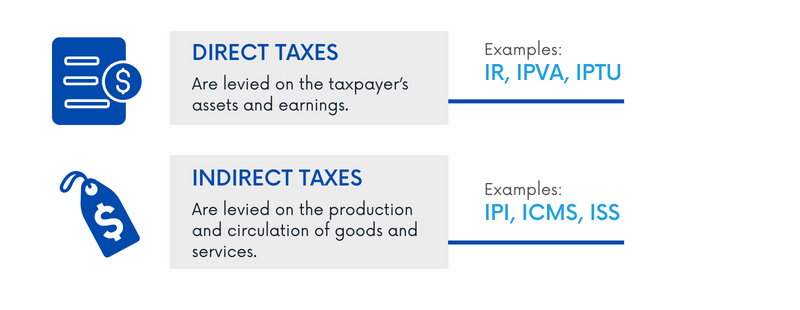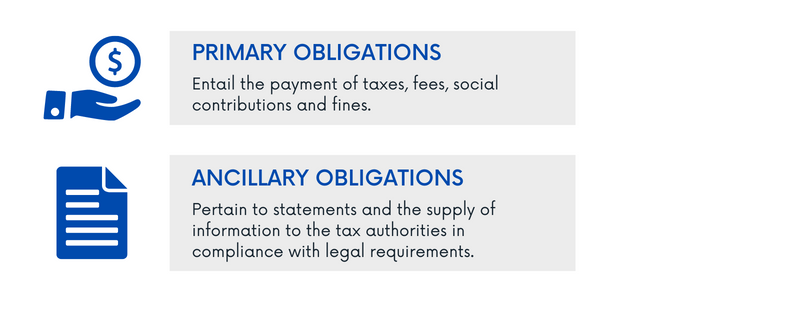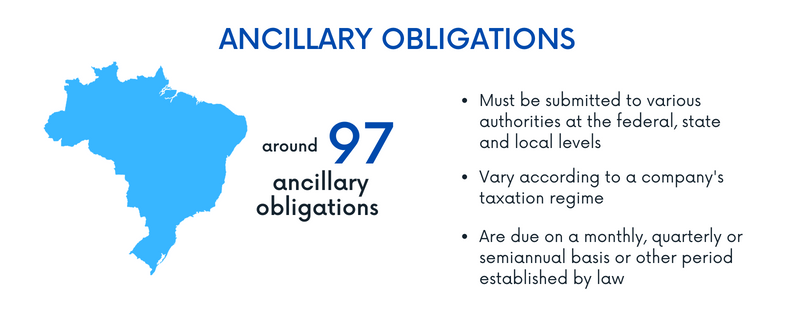Perse Program: Federal Revenue Service regulates tax benefits for the events sector
24/11/2022Quarterly DEF must be submitted by 12/30
24/11/2022EXPERT OPINION
Doing Business in Brazil: an insight into the Brazilian taxation framework
Brazil holds countless business opportunities, but its tax system is unique and requires attention
By Fabiana Soares
The Brazilian tax system is regarded as complex by the very people who live in the country, now imagine what goes through a foreigner’s mind when first coming across this tax framework.
A plethora of regulations, different levy types and methods of assessment may sound rather unfriendly to foreign investors. According to a study by the Brazilian Institute of Planning and Taxation (IBPT), on average 54 tax laws are enacted in the country every working day - 2.26 per hour. By September 2022, there were 32,460 regulations in force.
To get a grasp of the complexity of the situation, all you need to know is that Brazil has 26 states and over 5,000 municipalities, and each one of them is responsible for enacting its own tax rules.
Amid this scenario, it is important to have at least a general overview of what the Brazilian taxation system is like. Below, we have listed a few important aspects for a better understanding of the Brazilian tax landscape.
Levy types
In the broad sense, the main types of levies in Brazil are:
Taxes: the taxable event that gives rise to its collection does not depend on any specific state activity in relation to the taxpayer.
Fees: used to pay for public services provided to taxpayers or made available to them, such as street lighting and cleaning.
Special contributions: these are comprised of social contributions, which are intended to fund specific governmental actions. Their taxable event stems from the taxpayers themselves, as is the case of social security contributions, which finance welfare and social assistance (e.g.: payment of pensions).
Levy types also include special assessments and compulsory loans, but these are seldom charged.
Creation of taxes
The Federal Union, the Member States, the Federal District and the Municipalities can establish their own taxes. This situation gives rise to countless acronyms and rules.
Union taxes:
- II – Import duty
- IE – Export duty
- IPI – Tax on manufactured goods
- IR – Income tax
- ITR – Rural real estate tax
- IOF – Tax on financial transactions
- IGF – Wealth tax
Pursuant to the law, the Federal Union may create new taxes and impose extraordinary charges.
State and Federal District taxes:
- iITCMD – Estate and gift tax
- ICMS – Tax on the circulation of goods and on services of interstate and intermunicipal transportation and communication.
- IPVA – Tax on vehicles.
Municipal and Federal District taxes:
- IPTU – Urban real estate tax
- ITBI – Real estate conveyance tax
- ISS or ISSQN – Municipal services tax
Direct and indirect taxes
Direct taxes are levied on the taxpayer’s income or assets. Thus, personal property, real estate and earnings are all directly affected. Examples include the Urban real state tax (IPTU), the Tax on vehicles (IPVA) and the Income tax (IR).
Indirect taxes, in turn, pertain to business transactions and are levied on goods and services. They have a major influence on product pricing and their impacts should be well monitored by taxpayers. Indirect taxes can also vary depending on the state and municipality, as is the case of the Tax on the circulation of goods and services (ICMS) and the Municipal services tax (ISS).

Another aspect that poses a challenge for foreign companies wishing to adjust to the Brazilian market is that the way the country taxes consumption differs from international standards. While most countries have only one consumption tax in place, Brazil has at least five, which are collected by different federative units.
Tax regimes
Choosing a tax regime is highly important, as this will determine the way the business will be burdened by its tax obligations. This choice should be made while the company is being set up and its classification can be reviewed every year.
It is always worth analyzing all the information surrounding the business to reach the best conclusion, even if, in some situations, a given regime is mandatory for the company.
Check out the main tax regimes below:
Simple Taxation Method |
Only companies with annual sales of up to BRL 4.8 million can opt for this tax regime. |
Deemed Profit Income |
Optional for companies whose total gross revenue is equal to or less than BRL 78 million. |
Taxable Income |
Mandatory for companies whose total annual gross revenue exceeds BRL 78 million. Companies that operate in a few specific business activities are also bound by this regime. |
An annual tax planning helps businesses in taking the best course of action, while also providing other benefits, such as the identification of tax breaks and possible tax rebates.
Read more:
- Strategic tax management: best practices help ensure competitiveness
- Planning brings benefits and security to implementation of business
Primary and ancillary obligations
Tax obligations may be either primary or ancillary.
Primary obligations entail the payment of a tax or a penalty of money. In effect, they are made up of the numerous taxes, fees, and contributions that are charged to companies at the local, state, and federal levels, as well as their corresponding fines whenever they are imposed.
Ancillary obligations, on the other hand, have a declaratory nature. These are mostly electronic documents relating to accounting, tax, labor and social security matters, which must be filed at the federal, state, and local levels. Failure to comply with such requirements warrants high fines which may jeopardize a company’s good standing with the tax authorities, preventing the business from issuing important certificates.


Why seek a partner for tax management?
Relying on a dedicated partner equipped with the right technology to meet the authorities’ requirements is a great way to ensure a company’s good standing.
One should also keep in mind that tax management requires constant monitoring of legislative developments. On top of that, procedures should be reviewed on a regular basis in search of solutions tailored to the business’s goals and life cycle.
DPC's team of specialists helps companies in developing tax optimization strategies and in complying with routine tax obligations at all levels. You can rely on our support: dpc@dpc.com.br.

Author: Fabiana Soares, partner at Domingues e Pinho Contadores.
How DPC may help your company?
Domingues e Pinho Contadores has specialized team ready to assist your company.
Contact us by the e-mail dpc@dpc.com.br
See more
Sign up for our Newsletter:
Are you interested?
Please contact us, so we can understand your demand and offer the best solution for you and your company.

Rio de Janeiro
Av. Rio Branco 311, 4º e 10º andar - Centro
CEP 20040-903 | Tel: +55 (21) 3231-3700
São Paulo
Rua do Paraíso 45, 4º andar - Paraíso
CEP 04103-000 | Tel: +55 (11) 3330-3330
Macaé
Rua Teixeira de Gouveia 989, sala 302 - Centro
CEP 27910-110 | Tel: +55 (22) 2773-3318







